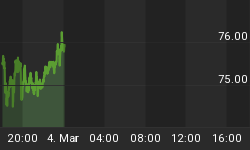A student sent me this little gem that an economics lecturer had written on the blackboard: "Modern economic theory no longer assumes that consumers are rational -- that is they have perfect knowledge of the market, fixed preferences and the markets they operate in are efficient". The source for the lecturers' wisdom, according to the student, is Professor Frank of Cornell University. To support this contention the lecturer referred the students to an article by Ross Gittins called Why economists predictably err on the side of human (The Age, January 2003) in which he supported Frank's view.
Let us start with the fact that it is fundamental axiom in economics is that people are rational. They act with purpose, regardless of the nature or morality of that purpose. Even this self-evident truth escapes some people and that is why Ross Gittins told his readers that Professor Frank of Cornell University had demonstrated that consumers are frequently irrational in the choices they make*
To prove his point, Gittins gave us the example of a radio that sells for $25 dollars in one shop but $20 in another several blocks away. Predictably we are told that most people will choose to save the $5 by walking to the other shop. However, when the same situation emerges regarding two televisions priced at $500 and $495 most people will choose to pay the $500. This action, according to Frank, is irrational because consumers are weighing the $5 dollars against the price of the product instead of against the benefit of saving $5. Mr Gittins agrees with Frank, even calling this kind of behaviour crazy though he admits to doing it himself.
This kind of consumer behaviour is neither irrational nor crazy, quite the opposite. Frank and Gittins' error is to confuse the $5 with the marginal purchase when it is in fact part of it. The costs to the consumer regarding the two radios in terms of money is not $5 but $25 or $20. The real cost, however, is what the consumer forgoes in buying one of these radios, i.e., the alternative goods he would otherwise have bought, what economists call opportunity costs. Therefore, when choosing between the two radios the consumer is really choosing between the values of the goods he must sacrifice to obtain the radio.
If the inconvenience (cost) of travelling to the other shop is less than $5 thus keeping the radio below the $25 price he will buy it. But it must be made clear that the consumer is weighing up the relative values of two possible purchases, not the $5 dollars difference. This explains the apparent paradox of the television set. When dealing with comparatively large purchases of substitute goods where the difference in prices is quite small the inconvenience of seeking a slightly cheaper substitute is usually considered not worth the effort.
The consumer has a scale of preferences on which goods are ordinally ranked. At that particular time a TV occupied top ranking and the next ranking is what is sacrificed to buy the TV, perhaps a stereo system. Now the consumer finds that an identical TV can be had for $5 less if he is prepared to travel a few blocks. Most won't. Why? Because the real difference between the purchase is, once again, not $5 dollars but the value of the goods that must be sacrificed to buy the TV. In this case, $500 and $495 respectively. In other words, the opportunity cost to this consumer of the $500 TV is still less than opportunity cost of the $495 TV plus the cost of travelling to get it.
Although consumers rarely use per centages to express price differences between similar goods I think it would pay us to do so in this case. The per centage difference for the radios is 25 per cent: for the TVs it is 1 per cent. This not to suggest that every consumer will consider that in this case the 1 per cent is insignificant, only that those who do are still acting rationally.
To suggest that the forgoing behaviour is "crazy" is to reveal a misunderstanding of marginalism and the true nature of cost. Even worse, for any economist to suggest that this behaviour is irrational is to impose his value scales on the consumer. All that Frank and Gittins can legitimately say about these consumers' behaviour is that their value scales differ from theirs. No more than that. But perhaps the last word for now should be left to the German Dominican Johannes Nider who wrote in about 1430:
The proper value of a thing [and it is values we are really talking about] depends on the way buyers or sellers may think about prices.
To Nider individuals assign utility to goods and on the basis of that make their choices. But maybe Nider would be considered simple-minded in today's world.
*Microeconomics and Behaviour, McGraw Hill















